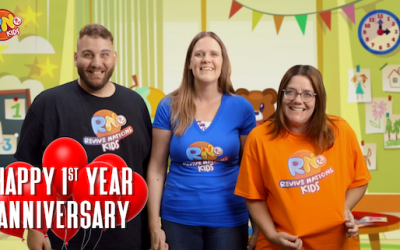By Sarah Evans
This week I would like us to think about valuing the children whom God has placed in our care. One way we can show our children that they are important and valuable to us is by setting aside quality time for them.
The kind of time that I am referring to does not involve the daily conversation around homework, chores and the general nagging that comes from all of the things that our children have ‘forgotten’ to do. It is a time to relax with our children, converse with them, get to know them better, and to share in their times of sadness and joy.
Writer Katy Abel explains that many of us parents struggle to find this ‘quality’ time with our children because of the fact that we are living in a generation of the ‘frenzied family’. She prompts us to think about our busy and hurried lives by asking:
“As you head back into (another week), you wonder: Can you really do it again? Pack lunches at dawn, dash from carpools to business meetings, apply mascara at stoplights, help with homework, and race to piano lesson pickups – only to return home, rush everyone off to bed, and then wake up to a go-go weekend of hockey practice, soccer games, and birthday parties?
The flipside of the economic boom is a time famine, and while adults pay a price, its biggest victims are our kids.”
Recently while working in an elementary school grade six class, I was sitting down with one student Billy (name has been changed) after the long Easter weekend. I had decided to take some time to speak with him, after I noticed that he was acting differently than normal during class time. I told Billy that I had noticed a change in his behavior and that I wanted to see if everything was OK, and then asked him about his weekend. Billy told me “it was OK I guess. My parents work all the time and I never get to spend time with them”. I was confused and asked him if his parents had gone to work during the holiday weekend. He replied “no, they were at home but they still spent all of their time working in the house. I wanted to watch a movie with them but they did not have the time”. This made Billy feel sad and frustrated, and it made me think a lot about the choices we as parents make.
An article from Focus on the Family states ‘we all have to choose how to occupy our limited free time, but we will never regret spending extra time with our children. Ask yourself:
Is the time you spend together as a family positive?
Does it draw you closer together, or are you simply in the same home at the same time?
Do you ever set aside time to learn more about your children, to exchange ideas and opinions free from the regular interruptions of life?
I realize that many parents feel overwhelmed, and do not even know how to slow down their already crazy ‘roller-coaster’ of a life. Many of us are probably thinking that we do not have the time to enjoy our children as we would like, and are perhaps even feeling guilty by reading this blog. But there is good news!
As much as it is valuable to set aside some time for your children, investing in an activity of their choosing, it is also possible to find this ‘quality’ time in the midst of our busy schedules. Listen to this other true story that I heard last month:
There was a grade two student named Simon, who was behaving very inappropriately in class and so the teacher contacted his mother on Friday to discuss Simon’s behavior. In response Simon’s mother told the teacher “as a consequence, he will be spending the entire weekend cleaning!” On Monday morning, little Simon came into class in a very good mood. The teacher asked him “how was your weekend?” He answered, with a big smile on his face, “It was fun. I was with mummy all weekend!”
Evidently, Simon spent the entire weekend cleaning. However he was so happy in spending ‘quality’ time with his mummy that he did not care about the fact he was cleaning instead of perhaps playing or going outdoors to the park.
In addition, another valuable way to spend time with our children is to make dinnertime ‘family-time’:
‘Researchers have found that family members who eat dinner together at least four times a week exhibit improved communication, healthier eating habits, higher grades and fewer problems with at-risk behaviors. The key to family dinners is keeping them free from distractions. Unplug from the world and pay attention to each other. One way this can be done is by having everyone around the table share his or her “highs” (best thing of the day) and “lows” (low point of the day). Use dinnertime to engage in some of the other thriving family behaviors: time, prayer and conversation (and maybe even some laughter).’
Look for, and make the most of opportunities during the day where you can share some ‘quality’ time with your children. It is an investment that will reap great rewards, and its value is beyond measure.
When you invest in the lives of your children, you do not only invest in your own lifetime but also in the lives of the generations to come.




